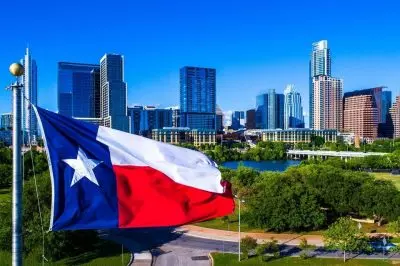 Las Vegas Sands, which a year ago sold its holdings in the Las Vegas Strip, is willing to get back to the US gambling market, along with its casino resorts in Singapore and Macau. The company’s effort, however, does not involve Las Vegas expansion plans.
Las Vegas Sands, which a year ago sold its holdings in the Las Vegas Strip, is willing to get back to the US gambling market, along with its casino resorts in Singapore and Macau. The company’s effort, however, does not involve Las Vegas expansion plans.
Since the beginning of 2023, Las Vegas Sands has been associated with a number of opportunities for potential casino and gambling developments in the New York City area and the state of Texas. Reportedly, the casino operator is seeking to spend billions of dollars in both locations to regain its foothold in the US gambling sector.
Sands, which has left behind the Las Vegas name, has become one of the gambling operators willing to get one of the three operating permits that would allow the establishment of a multi-billion-dollar casino resort within the largest metropolitan region in the US and in close proximity to the most populous city in the country. According to most market experts, two of the licenses are already pretty much settled, which leaves the company the opportunity to participate in the competition for only one lucrative opportunity that would see the approved candidate situate a casino within reach of more than 20 million people in the southern part of New York and the northern part of New Jersey.
Apart from that, Sands has made a commitment to spending millions of dollars in investments seeking to bring some changes to casino legislation in Texas, which remains one of the states with no legal sports betting services or regulated commercial casinos. Currently, the casino operator remains the primary financial supporter of the Texas Destination Resort Alliance (TDRA), which has been campaigning across the state, trying to get as much support as possible in order to get local lawmakers to allow Texan residents to vote on a constitutional amendment seeking to authorize the development of so-called destination resorts in the major cities across the state.
Sands Aimed at Making an Effort to Step in New York City by Establishing Full-Scale Casino Resort
 Sands seems to be longing for a New York City establishment. It was the company’s founder, the late Sheldon Adelson, who hired some high-profile lobbyists in an unsuccessful effort to roll out a casino approval process in New York City years ahead of this year’s timeline mandated by the state. At the time, Mr. Adelson unveiled plans to establish a casino resort next to one of the largest US convention centers, the Javits Center.
Sands seems to be longing for a New York City establishment. It was the company’s founder, the late Sheldon Adelson, who hired some high-profile lobbyists in an unsuccessful effort to roll out a casino approval process in New York City years ahead of this year’s timeline mandated by the state. At the time, Mr. Adelson unveiled plans to establish a casino resort next to one of the largest US convention centers, the Javits Center.
That site, however, was claimed by Wynn Resorts in 2022, after the company announced a partnership with New York-based Related Companies that was formed to seek a gambling license for Western Yards.
In January, Sands unveiled aspirations to seek lawmakers’ approval for a Long Island-based casino resort. The 80-acre site considered for the project is home to the Nassau Veterans Memorial Coliseum. At the time, the company’s CEO and Chairman Rob Goldstein revealed that the project was not a regional casino but a full-blown resort, and explained that the development and construction costs of the project are expected to amount to between $4 billion and $5 billion. Mr. Goldstein shared that the potential casino business in New York would be a unique opportunity for the casino operator, especially considering the size and scope of the region. He further suggested that, with two more casinos targeting Manhattan and its neighboring communities, all three casinos could be profitable.
According to some market analysts, the process of establishing such a presence in New York City would be extremely competitive, especially because of the fact that an integrated New York-based resort would represent an attractive way for the company to once again enter the US market and utilize the proceeds from its Las Vegas Strip asset sale.
Apart from Sands and Wynn Resorts, Caesars Entertainment has proposed to establish a casino at Times Square in partnership with developer SL Green Realty Corp. the Chickasaw Nation from Oklahoma is part of an effort to establish a casino on Coney Island, while the Seminole Indian Tribe from Florida, has reportedly been negotiating with Steve Cohen for a casino establishment on Willets Point. According to most market experts, two of the licenses are likely to be granted to Resorts Rowlrd and MGM Resorts International, which already operate casino facilities at two horse racing tracks in the area of New York. Тhe casinos will only offer so-called video lottery terminals.
Gambling Expansion Effort in Texas also in Sands’ Agenda
 As for the gambling legislation efforts in Texas, it remains unknown what will happen in the local Legislature until the end of 2023.
As for the gambling legislation efforts in Texas, it remains unknown what will happen in the local Legislature until the end of 2023.
As previously reported, a piece of legislation seeking to establish a Las Vegas-style casino resort in each of the four major metropolitan markets in the state – Houston, Dallas-Fort Worth, Austin, and San Antonio – backed by the TDRA was filed in January and requires Texans’ approval in a ballot that is set to take place in November.
Under the proposed bill, limited gambling options are set to be allowed at local racetracks, while Native American tribes with electronic bingo facilities would be able to add slot machines and other forms of gambling.
Unfortunately, authorization of gambling in Texas is still far from completion, with the effort likely to take some time, considering the competing interests and bureaucratic difficulties in the jurisdiction. Moreover, this is not the first time when Sands-backed casino expansion efforts have not managed to get the necessary support in the state.
Texas is known for its historically strict laws regulating most forms of gambling, even at a time when its neighboring states have taken the chance and expanded their markets by the addition of casino gambling.
Gambling legalization opponents have also had powerful allies in the Texan Legislature but gambling operators now want to take advantage of an ongoing momentum as the local public seems ready to support some significant changes in the way gambling is regulated in the state. According to researchers, the Democratic Party is more likely to back expanded gambling options than the Republican Party, and an increasing number of local residents in urban, suburban, and rural areas have started to support gambling expansion.